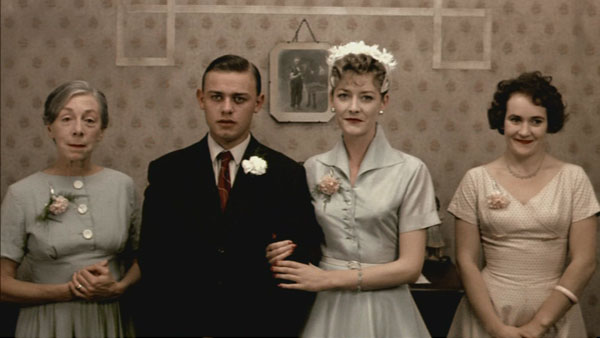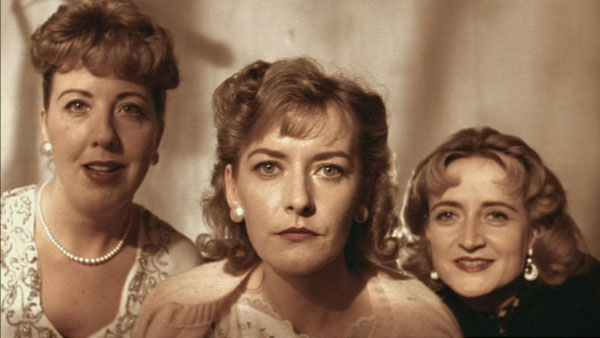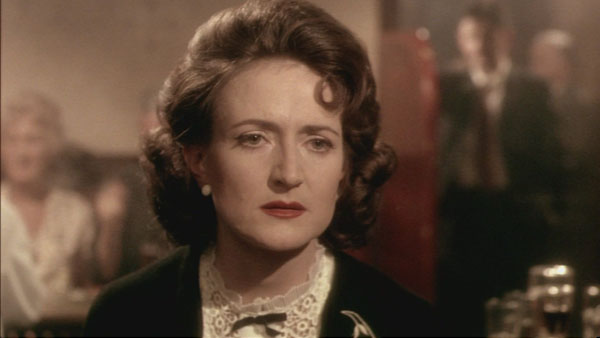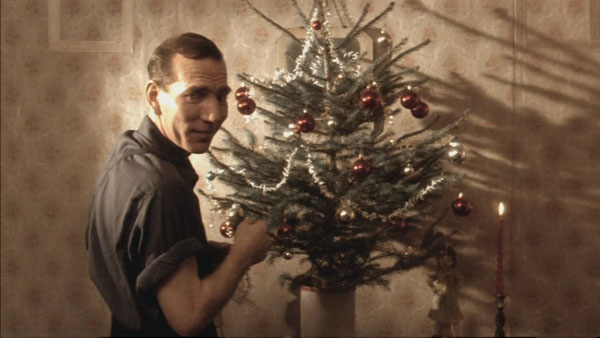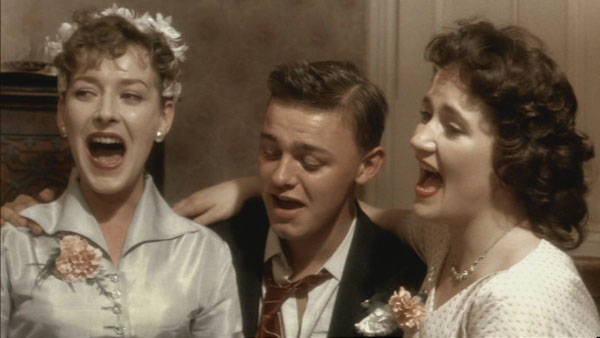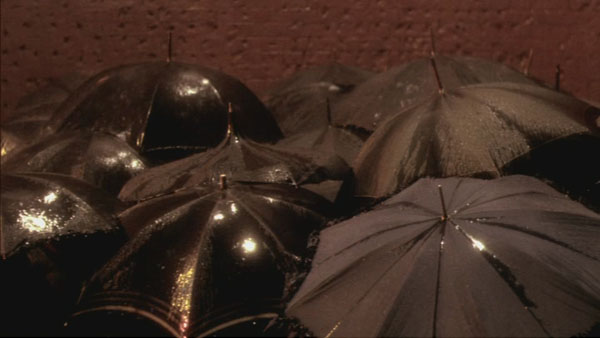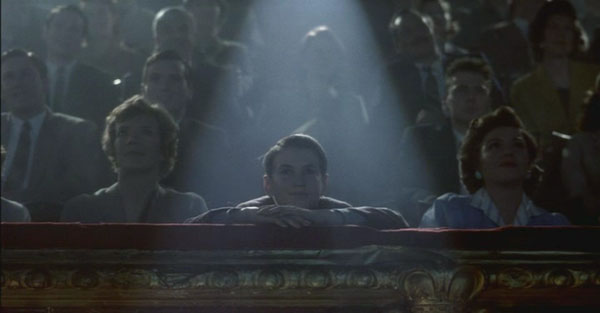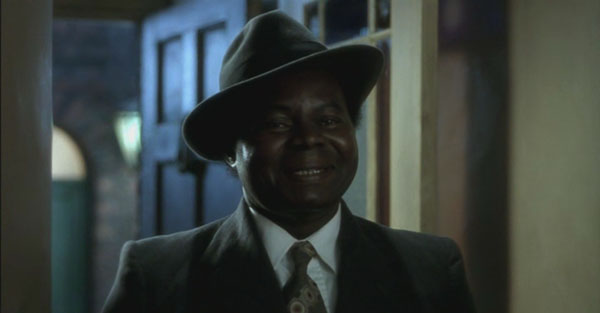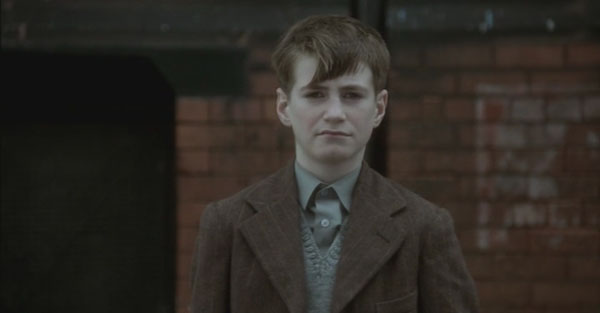Could See a Puma (2011, Eduardo Williams)
Youths live in the ruins, someone falls and gets hurt. Camera likes to rove around, not getting too close to the action. It’s nice to see that the Human Surge guy’s stylistic weirdness was already in place at this point. A few kids go looking for a medicinal herb, do not see a puma but they do slip into another dimension.
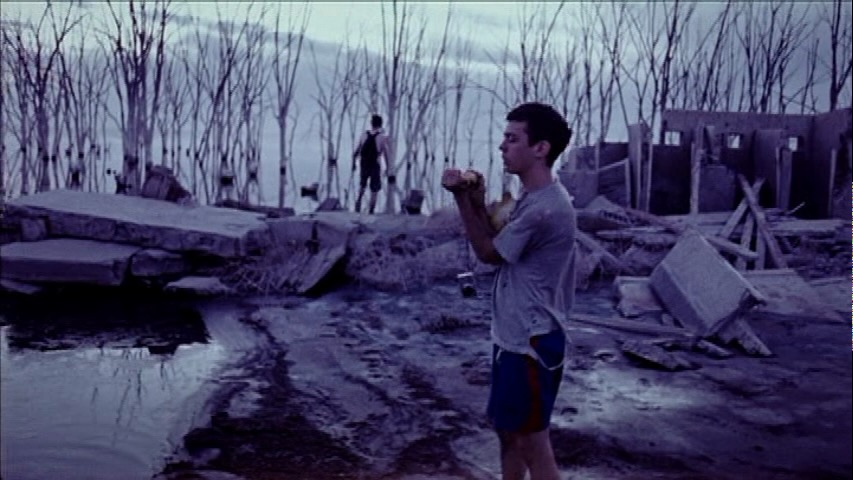
–
Schody/Stairs (1969, Stefan Schabenbeck)
Clay guy comes across a sea of stairs, wanders through, up and up, until he reaches the summit of a long staircase then lies down and becomes another step in the stairs. Polish, of course. Whatever point they’re making about the futility of life, they sure spent a lot of time on stair fabrication and walking animation to make it.

–
The Heart of the World (2000, Guy Maddin)
This should probably play monthly in every movie theater.
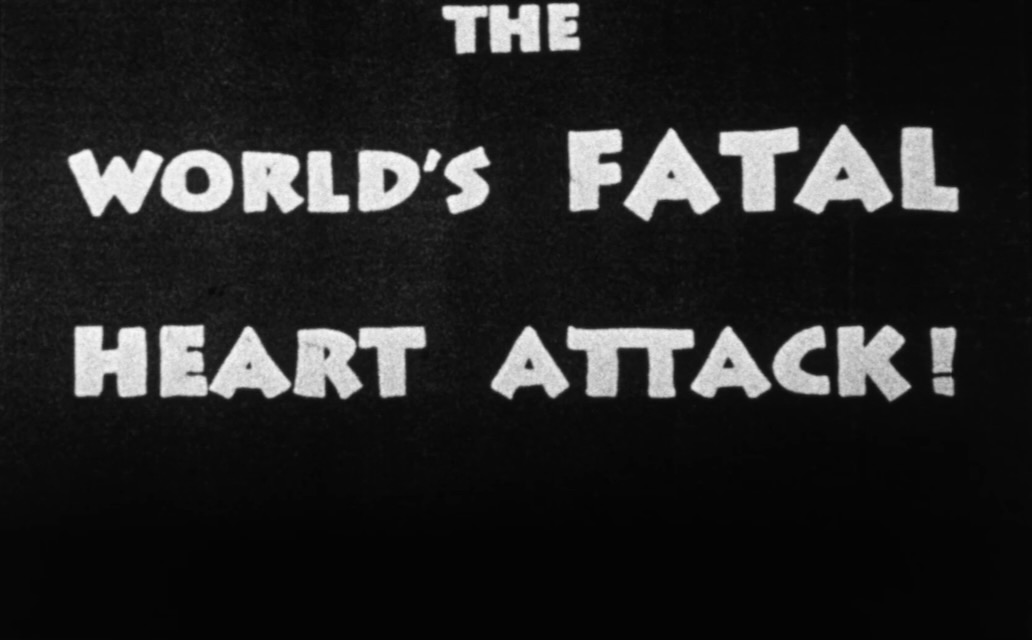
–
Creature Comforts (1989, Nick Park)
Always assumed I’d seen this before but maybe not. Interviews with zoo patrons restaged as interviews with the clay-mated animals, started a whole trend of these things.
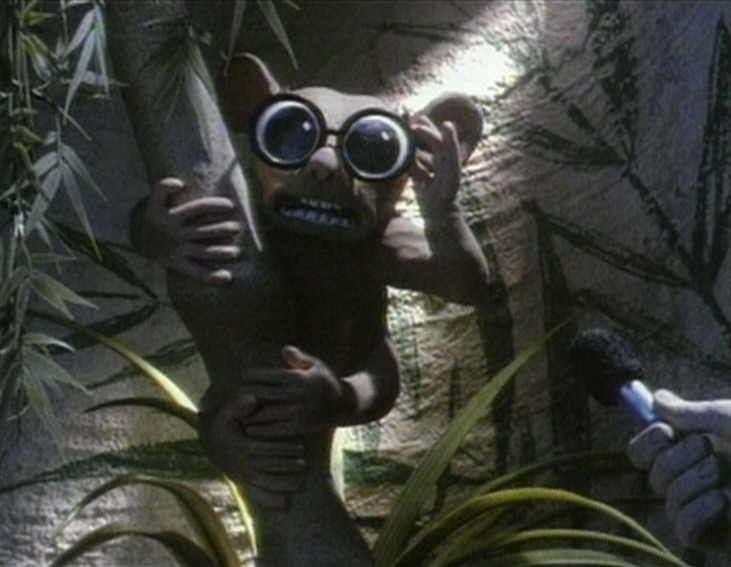
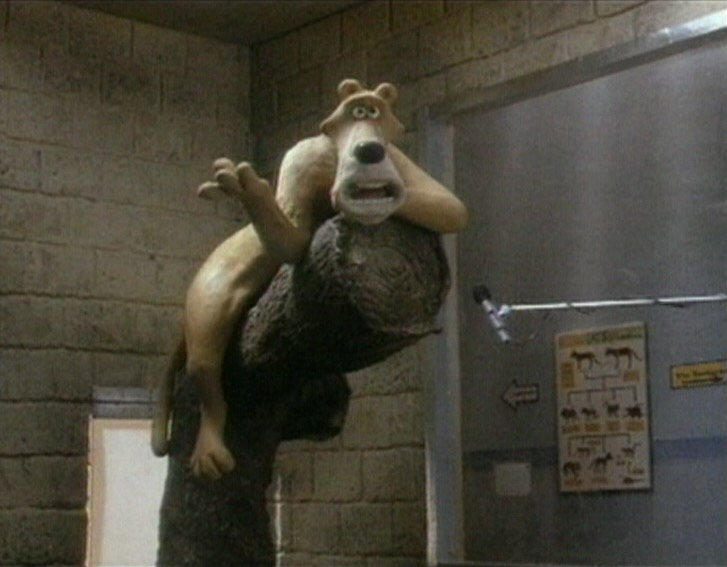
–
Inspirace (1949, Karel Zeman)
What madman would make a stop-motion film out of glass? Artist in need of inspirado spaces out on a rainy window, dreams a glass fantasy ice skater and the dandelion clown in her pursuit.
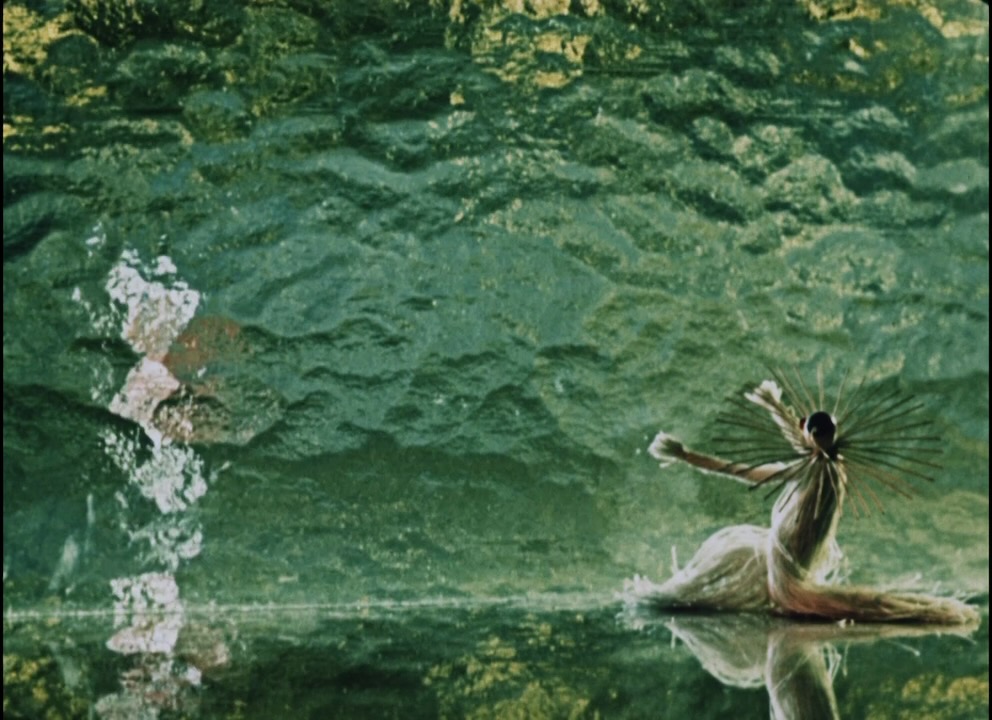
–
Man Without a Shadow (2004, Georges Schwizgebel)
Swirling dizzy blobby animation. The man has a shadow from the start, so I wasn’t surprised when he sells it to a devil in exchange for the promise of riches and women. But I was surprised when, after women want nothing to do with a shadowless man, he gets a pair of red boots that enable him to leap across the earth, checks out different gatherings, and settles on a shadow theater where he can manipulate the puppets shadowlessly without using rods or strings.
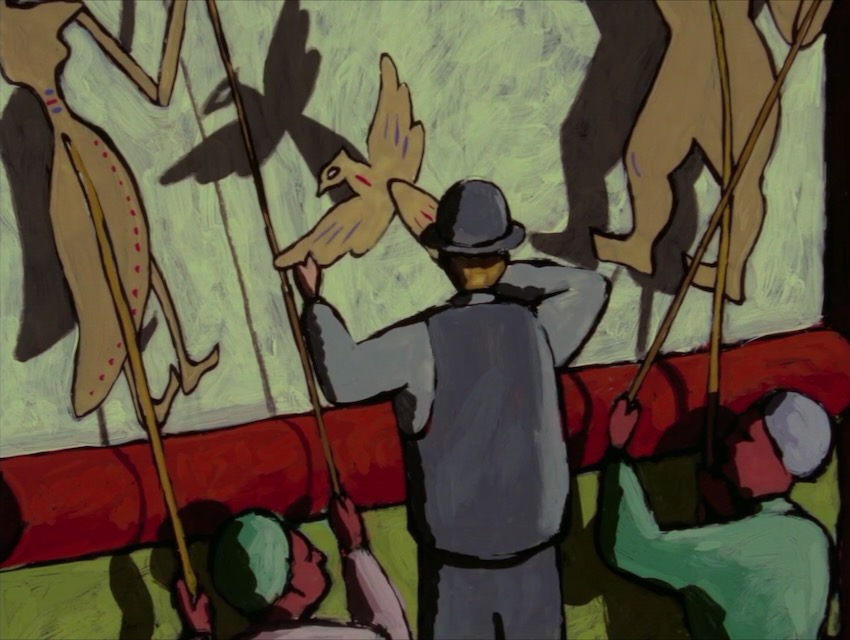
–
Passing Time (2023, Terence Davies)
Terence reads a poem with that voice of his – rougher than it was in Of Time and the City – the music piece swelling in the background – over a nice shot of some trees.
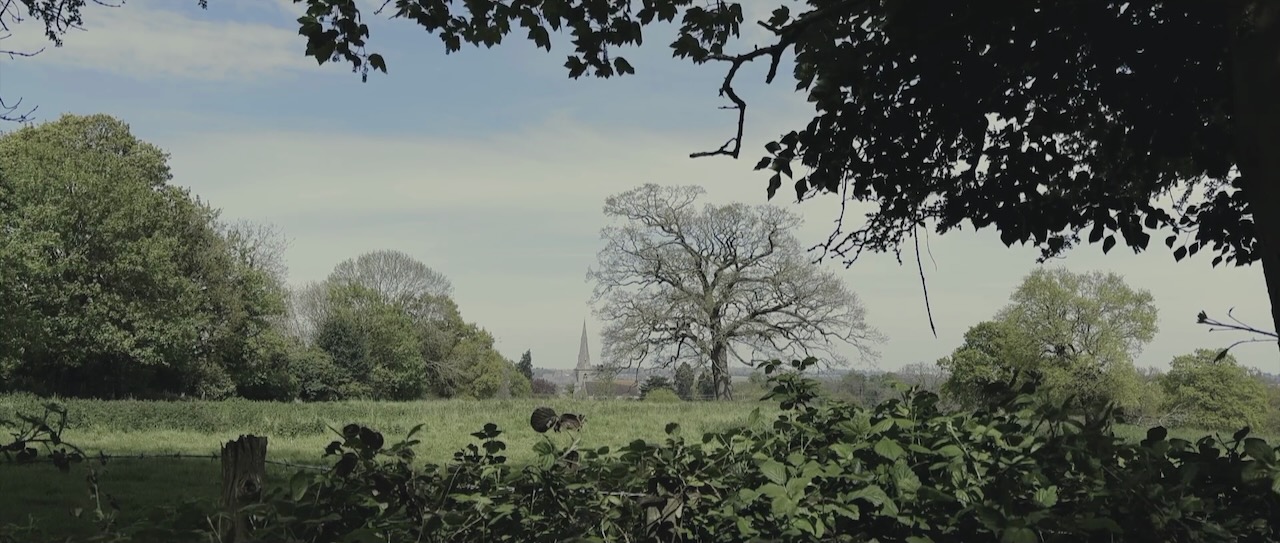
–
But Why? (2021, Terence Davies)
I never wrote up this Benediction-era Davies poem, in which two of his stars from that movie swap places/timelines, but I’ve watched it many times and like to quote it when I ascend the stairs, I descend the stairs… but why?




















